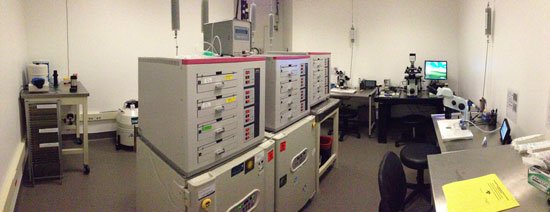In today’s job market, employers expect to see at least one internship on a student’s resume. Students gain valuable professional experience through an internship. They also get to put the concepts and theories they have learned in class into action.
Students can learn professional skills such as time management and collaboration during their work experience through internships. Internships can also offer financial compensation, such as a stipend or payment to cover tuition expenses and helps reduce student debt.
Benefits
Internships can help students discover their career direction. Many students start college with a specific major or career path in their minds, but an internship may help them determine whether they’ve chosen the right path. Additionally there are many internships that lead to job opportunities and/or contacts that can facilitate a smooth transition into work.
Having an internship on your resume will make to stand out among other applicants in the job search process, as employers are attracted by this kind of experience and are more likely to hire interns than applicants with no. Indeed, a recent study found that students who have internships had a significantly easier time negotiating their starting salary than those who do not have an internship.
Students may be able to earn academic credit for internships, based on the program and internship description. It is essential for the student to understand the conditions of the internship and make sure it meets the criteria. For instance, certain programs may offer only a certain number of hours per week and demand an exact degree of proficiency.

How do internships boost job prospects?
Rather than not waiting until post-graduation to start looking for jobs, companies can engage interns during their second and third years of college to forge a stronger relationship and build brand affinity. It’s the perfect time to offer an internship as students are comfortable with the campus and have developed their skills in coursework and extracurriculars. Additionally, they have a better understanding of the career path they’d like to take.
Students may also test various careers and organizations prior to taking a final decision on a permanent position. This lets them determine if the job sparks their interest and fits their life. Based on a study done recently, 81% students reported that internships have been instrumental in changing their choices of a major, college or career direction.
Internships allow students to pick up the “soft” skills which aren’t taught in the classroom, but are crucial to professional achievement. These include the ability to conduct yourself professionally as well as how to behave for your coworkers, and how to make a difference in the workplace.
Internships can aid you in advancing your career.
Internships provide valuable insights into the day-to-day responsibilities and career opportunities within an industry. Internships also allow interns to decide if a particular career path is a good fit for their abilities and interests.
Interns learn leadership and professional abilities that they can use throughout their careers. They also develop professional connections that serve as references to jobs as well as mentors and contacts for career development. Both the intern and company benefit from full-time employment as internships turn into permanent jobs.
Both companies and colleges profit from the skills and enthusiasm for learning that interns bring to their workplaces. The majority of internships lead to job offers and acceptance to the graduate or health professional school.
Internships aren’t just an excellent way to enhance student skills and help them prepare for the workplace, but they also help promote social justice. Research has shown that internships without pay are more common among students with backgrounds that are less favourable. Organizations like The Washington Center have developed programs to defray intern expenses which makes internships more affordable for students who are low-income. The government should increase funding for internships to support these programs.
How to include internships on the Resume
It’s important that you highlight your particular projects and responsibilities when writing your Internship Resume. Include the number of work hours per week and any notable achievements. It’s also a good idea to write down your goals for the future. This helps hiring managers understand your motives and how you’ll be a good fit in the company’s culture.
There are a variety of internship models available, from short professional experiences that focus on job shadowing, to semester-based internships that grant college credit and click here to investigate https://baoxinviec.shop/. Certain interns are paid and others get paid academic credit or participate in cooperative educational experiences, also known as co-ops, that last for many years.
As you add the internship experience you have had to your resume, ensure that it is in line with your career objectives. Think about including your certifications and educational qualifications, as well as any work experience that is relevant. You can also incorporate any soft skills you’ve acquired through volunteerism or other extracurricular activities, for example, writing for a school publication or winning a debate contest. Make sure you include keywords in your resume, which will help your resume be scanned by ATS.
Interns can gain from networking opportunities
Internships provide unparalleled networking opportunities. They offer essential training on the job that is not possible in the classroom. Interns may have the chance to meet with managers, executives and coworkers with vast amounts of knowledge in their field of choice. They’ll continue to be mentors and guides for students even after their internship is over.
Students must make it a priority to meet their supervisors and coworkers during their internship. It is crucial to establish friendships by asking them for guidance and assisting them with their projects. This is especially crucial for interns who are hoping to advance in the company they work for.
Interns should try to go to as many social and charity events as they can during the time they are in the process of interning. This will allow them to get to know their colleagues outside of the workplace and further increase their professional connections. They’ll be able to reach out to them to get references, connections and career guidance when they are job searching. They can use these contacts to apply for internships or job opportunities in the future.





